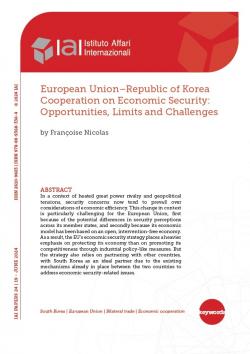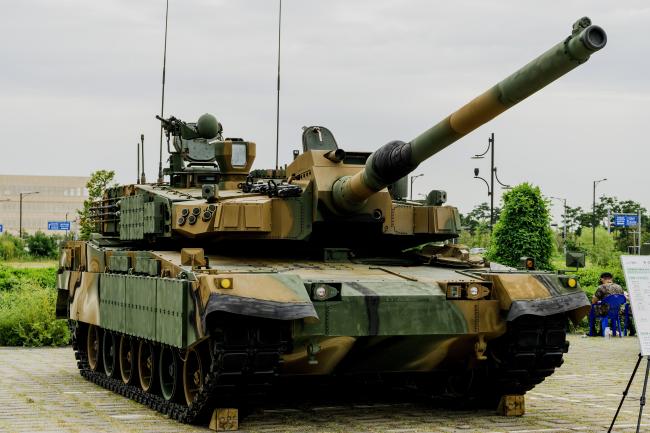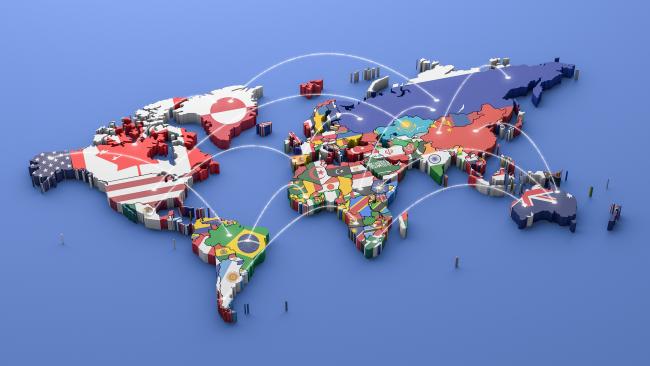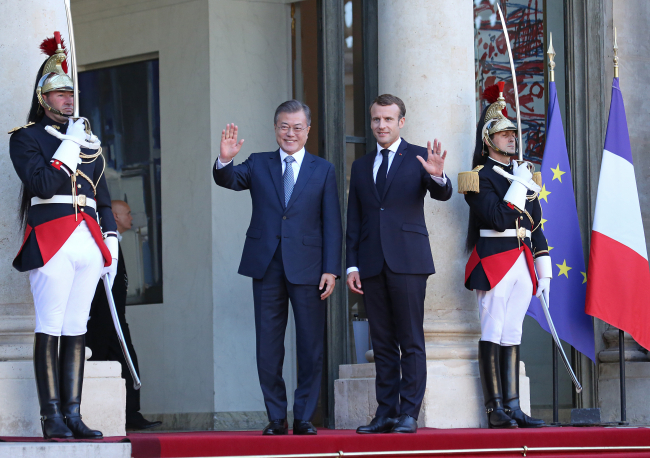What is Korea getting at through its New Southern Policy ?
In this interview, Wongi Choe, head of Center for ASEAN–India Studies at the Korea National Diplomatic Academy (KNDA) looks at the rationale for and the content of Korea's New Southern Policy.
Korea’s New Southern Policy : An Economist’s Perspective
In this interview, Choong-Ryeol Lee, professor at Korea University looks at the objectives of Korea's New Southern Policy, its economic impact, and Korea's economic cooperation with India.
A New Player in the Indo-Pacific? South Korea’s New Southern Policy
A webinar by the Center for Asian Studies on South Korea's New Southern Policy examined the motivations, objectives, and means of, as well as possible challenges to, this policy, through an analysis of economic and trade cooperation on the one hand (Prosperity) and diplomatic and security cooperation on the other (People and Peace).
Cooperation Despite Frictions in Northeast Asia
Cooperation Despite Frictions in Northeast Asia
Despite the political tensions that oppose Japan, China and South Korea, recent months have seen a certain rapprochement between Tokyo, Seoul and Beijing. The first trilateral summit in three years was held in November 2015.
Cooperation Despite Frictions in Northeast Asia

Chine/Corée du Sud/Japon: un passé qui ne passe pas
Cet été marque le 70ème anniversaire de la fin de la deuxième guerre mondiale avec le largage des bombes atomiques sur Hiroshima et Nagasaki en Août 1945. Alors que les relations entre la Chine et la Corée du Sud sont au beau fixe, Pékin et Séoul entretiennent des rapports tendus avec Tokyo.
(Dis)integrating Asia? - Interview with Wook Chae
Wook Chae is a professor at the Graduate School of Pan-Pacific International Studies of Kyung Hee University and the former President (2008-2013) of the Korea Institute for International Economic Policy (KIEP).
Europe’s Black Mass Evasion: From Black Box to Strategic Recycling
EV batteries recycling is a building block for boosting the European Union (EU)’s strategic autonomy in the field of critical raw minerals (CRM) value chains. Yet, recent evolutions in the European EV value chain, marked by cancellations or postponements of projects, are raising the alarm on the prospects of the battery recycling industry in Europe.

European Union–Republic of Korea Cooperation on Economic Security: Opportunities, Limits and Challenges
This piece is a revised version of a paper presented at the conference on “New Convergences in EU-ROK Economic Security Relations”, organised in Rome on 30 January 2024 by the Istituto Affari Internazionali (IAI).
Europe’s Black Mass Evasion: From Black Box to Strategic Recycling
EV batteries recycling is a building block for boosting the European Union (EU)’s strategic autonomy in the field of critical raw minerals (CRM) value chains. Yet, recent evolutions in the European EV value chain, marked by cancellations or postponements of projects, are raising the alarm on the prospects of the battery recycling industry in Europe.

European Union–Republic of Korea Cooperation on Economic Security: Opportunities, Limits and Challenges
This piece is a revised version of a paper presented at the conference on “New Convergences in EU-ROK Economic Security Relations”, organised in Rome on 30 January 2024 by the Istituto Affari Internazionali (IAI).
South Korea’s Emergence as a Defense Industrial Powerhouse
In recent years, South Korea’s ascent in the global arms market has been remarkable. This surge, particularly amid a shifting geopolitical landscape and the ongoing Ukraine-Russia War, has captured the attention of security watchers worldwide.
Korea Looks to the Pacific: A First Cut with the 1st Korea-PIC Summit
Korea (ROK) held the first Korea–Pacific Islands Summit at head-of-state level on May 29/30 and entered an already crowded Pacific region.
The Technology Policies of Digital Middle Powers
Digital technology is an element of power in the international system as well as an area for competition among countries. The study provides a qualitative comparison of the technology policies of nine of the digital middle powers: Brazil, India, Israel, Japan, Kenya, Nigeria, Russia, South Korea, and the United Kingdom. It seeks to reflect the diversity of national technology policies, as well as to identify those countries’ convergences and divergences with Europe, the United States and China.
South Korea and IPEF: Rationale, Objectives and the Implications for Partners and Neighbors
As a key manufacturer of high-end technology components critical to the sustainability of the Fourth Industrial Revolution, South Korea is essential in any effort to rebuild a resilient global supply chain but also to the promotion of a clean economy. South Korea can thus contribute to two of the pillars of IPEF (Indo-Pacific Economic Framework), specially to pillars II and III (supply-chain resilience and a clean economy).

Korea-EU Direct Investment Links: The Neglected Facet of a Tight Partnership
Despite their difference in size, Korea and the EU have developed over time a strong and deep relation through direct investment flows. Germany dominates the relationship, but there remains ample room for the other EU member-states to further develop their relations with Korea.
South Korea and France’s Indo-Pacific Strategies: Potential Partnership and Challenges
Despite some constraints on their Indo-Pacific strategies, South Korea and France could consider bilateral dialogues for partnership in the Indo-Pacific, leading to a high level of confidence and strategic convergence in security.
The Economic Pillar of Korea’s New Southern Policy: Building on Existing Assets
Diversification is a key tenet of South Korea’s New Southern Policy (NSP). In the economic sphere, however, the need for diversification is apparently less pressing as, unlike what is observed in the diplomatic and security domains, Korea’s economic partnerships are less unbalanced and are not (or not as clearly) polarized on the big Four (China, Japan, the United States, and Russia).
“New Southern Policy”, Korea’s Newfound Ambition in Search of Strategic Autonomy
The New Southern Policy (NSP), the signature foreign policy initiative by President Moon Jae-in of the Republic of Korea (ROK) that was officially launched in November 2017, has opened a new chapter in Seoul’s relations with the Association of Southeast Asian Nations (ASEAN) as well as India.
Korea’s New Southern Policy : An Economist’s Perspective
In this interview, Choong-Ryeol Lee, professor at Korea University looks at the objectives of Korea's New Southern Policy, its economic impact, and Korea's economic cooperation with India.
What is Korea getting at through its New Southern Policy ?
In this interview, Wongi Choe, head of Center for ASEAN–India Studies at the Korea National Diplomatic Academy (KNDA) looks at the rationale for and the content of Korea's New Southern Policy.
Cooperation Despite Frictions in Northeast Asia
Cooperation Despite Frictions in Northeast Asia
Cooperation Despite Frictions in Northeast Asia
Despite the political tensions that oppose Japan, China and South Korea, recent months have seen a certain rapprochement between Tokyo, Seoul and Beijing. The first trilateral summit in three years was held in November 2015.
Support independent French research
Ifri, a foundation recognized as being of public utility, relies largely on private donors – companies and individuals – to guarantee its sustainability and intellectual independence. Through their funding, donors help maintain the Institute's position among the world's leading think tanks. By benefiting from an internationally recognized network and expertise, donors refine their understanding of geopolitical risk and its consequences on global politics and the economy. In 2024, Ifri will support more than 70 French and foreign companies and organizations.
















